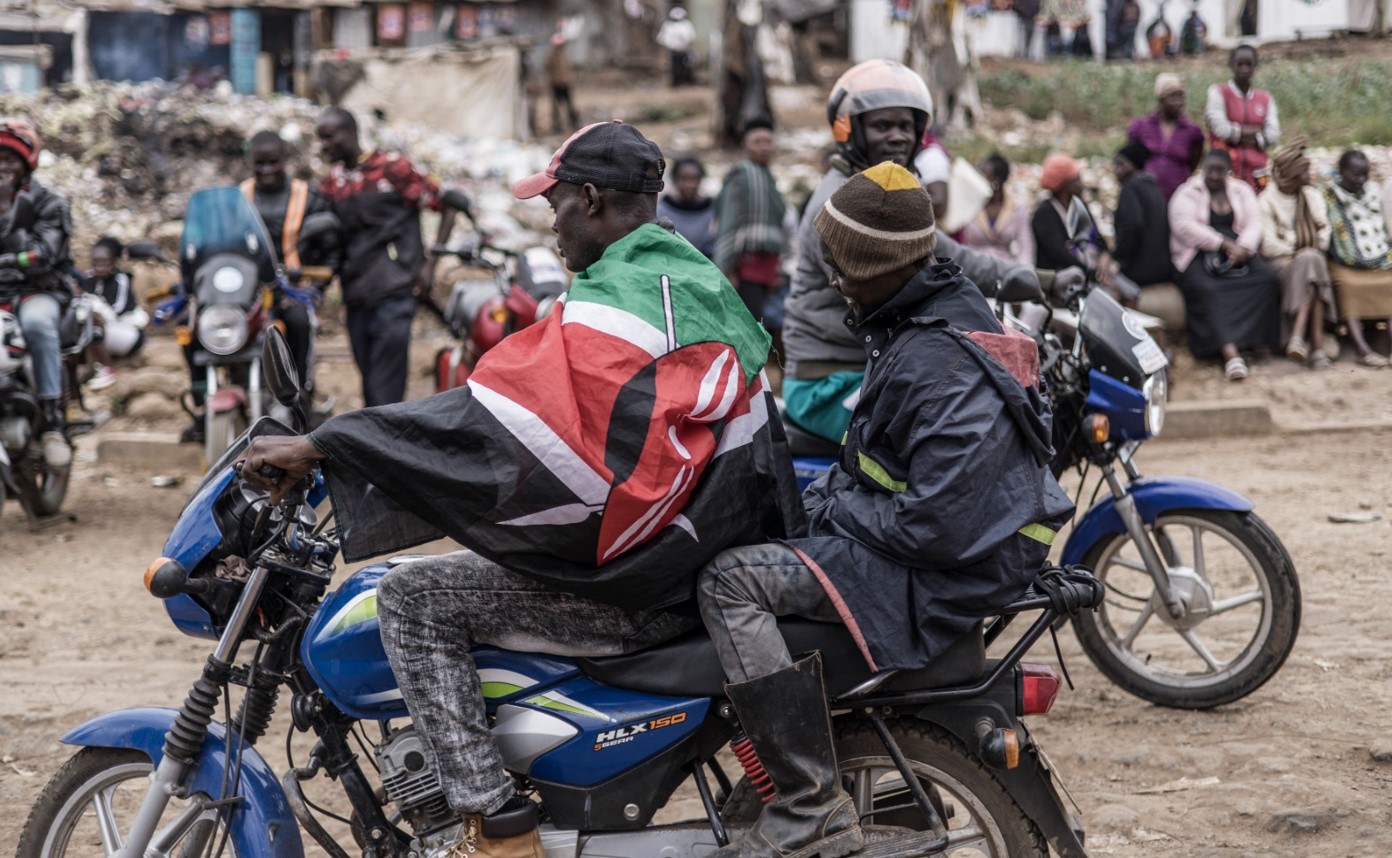Senate proposes new regulations to streamline Kenya's boda boda sector

To assist law enforcement in distinguishing commercial motorcycles from private ones, boda bodas will be branded with specific colour bands designated by the county authorities.
Commercial motorcycles, widely known as boda bodas, are set for a major overhaul, as lawmakers propose new regulations aimed at taming the chaotic sector.
The Senate Roads and Transportation Committee has tabled a series of amendments to the Public Transportation (Motorcycle Regulations) Bill, 2023, which promises to enforce stricter guidelines to enhance safety and streamline operations within the motorcycle industry.
More To Read
- IPOA launches probe as family demands truth over boda boda rider’s death in Nairobi police cell
- Childhood on Edge: How shrinking play spaces put Kenyan children in danger on the roads
- Kamukunji security meeting targets drug abuse, boda boda crime and juvenile delinquency
- Dagoretti North boda boda riders launch voter registration drive after electing new officials
- Boda boda riders to wear county-specific uniforms, carry unique IDs under new reforms to curb lawlessness
- Marsabit on edge as boda boda riders clash with police over brutal killing
Under the proposed law, boda bodas will be required to display number plates both at the front and back of their vehicles, a rule currently enforced for regular motor vehicles.
This measure, aimed at boosting identification and accountability, is among the key changes introduced by the Bill. Motorcycles will also be branded with designated colours as part of a broader initiative to separate public service vehicles (PSVs) from private motorcycles.
Kakamega Senator Boni Khalwale, the sponsor of the Bill, highlighted that the goal is to create a legal framework for the operation of motorcycles and three-wheelers, commonly known as tuk-tuks, at the county level.
"The principal objective of this Bill is to put in place a legal framework to regulate the use of motorcycles (boda bodas) and three-wheelers (tuk-tuks) in Kenya, by introducing new provisions for their registration, operation, and safety at the county level," reads the bill in part.
The Senate committee is also advocating for regular inspections of boda bodas to ensure safety standards are met.
Additionally, motorcycles used for public transport will be treated as Public Service Vehicles (PSVs) and required to go through inspections and registrations at the county level.
Three-year grace period
One of the notable features of the proposed regulations includes a three-year grace period for owners of old motorcycles to comply with the new rules.
However, all new motorcycles must adhere to the rule of having number plates displayed on the front.
The committee has called on the National Transport and Safety Authority (NTSA) and the Ministry of Transport to amend the Traffic (Registration Plates) Rules accordingly.
To assist law enforcement in distinguishing commercial motorcycles from private ones, boda bodas will be branded with specific colour bands designated by the county authorities.
This branding will help police officers easily identify which motorcycles are operating as PSVs.
The committee has also proposed a clause to empower county governments to introduce their own motorcycle-related legislation tailored to the unique needs of their regions. This flexibility aims to allow counties to address specific local challenges while maintaining a uniform approach to public safety.
According to the latest statistics from the National Transport and Safety Authority (NTSA), boda bodas are involved in a disproportionate number of fatal accidents.
In the final three months of 2024, nearly 800 people, including riders, passengers, and pedestrians, lost their lives in boda boda-related accidents.
In 2023, Bodaboda operators had 1,133 deaths, compared to 1,255 in 2022.
In 2021, at least 1,634 motorcyclists and their passengers died in crashes, the highest number of fatalities recorded.
The previous year saw 1,026 deaths from January to September.
In 2019, there were 1,421 deaths among riders and their passengers, compared to 1,049 deaths among drivers and their passengers.
The NTSA also reports that approximately 2.5 million boda bodas are registered in Kenya, with 1.8 million currently active.
The Bill, which is still under review in the Senate, also proposes mandatory training for boda boda operators.
Riders will be required to complete an approved training course before operating a commercial motorcycle. The law will also mandate that riders become members of a registered cooperative society to ensure better control and accountability within the sector.
"A person shall not operate a motorcycle unless they have completed a training course approved by the board," the Bill states.
In addition, the proposed law includes provisions for the revocation of licenses in cases of criminal activity, aiming to root out bad actors from the industry.
If passed, the Bill will bring much-needed regulation to a sector that has long operated with minimal oversight, with safety being a major concern.
Top Stories Today














































